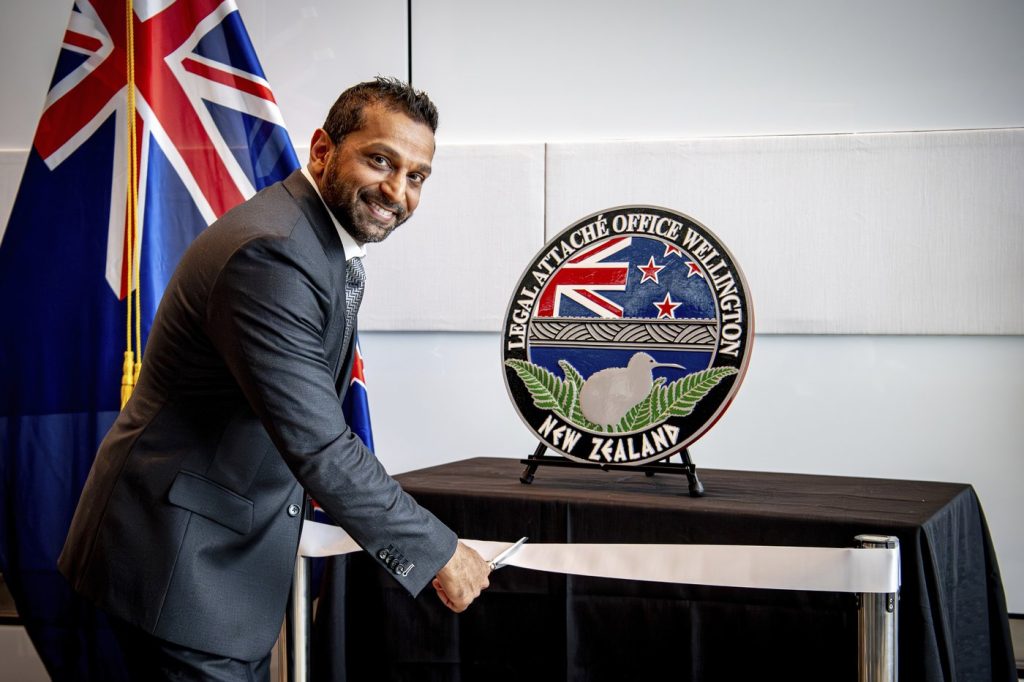WELLINGTON, New Zealand (AP) – FBI Director Kash Patel has caused diplomatic tension in New Zealand by indicating that the newly opened FBI office in Wellington is intended to counter China's influence in the South Pacific. His remarks, which were part of a video published by the U.S. Embassy, prompted dismissive responses from New Zealand officials and anger from Beijing.
Patel was in Wellington on Thursday to inaugurate the FBI's first standalone office in New Zealand, aligning it with FBI operations in other Five Eyes intelligence-sharing nations, including the United States, Australia, Canada, and the United Kingdom. This office marks a significant step for New Zealand, which has seen FBI staff operating under Australian oversight since 2017.
During his address, Patel emphasized the office's role in addressing the influence of the Chinese Communist Party in the contested South Pacific region. However, New Zealand ministers, including Foreign Minister Winston Peters and Judith Collins, Minister for the Security Services, chose not to acknowledge Patel's comments about China. Instead, they focused on collaboration in combating crimes like online child exploitation and drug smuggling, without mentioning China at all.
Peters noted that the issue of Chinese influence was not raised during their discussions with Patel. Collins also sidestepped the topic, stating that she does not respond to the press releases of others. Moreover, Trade Minister Todd McClay clarified that the opening of the FBI office was neither celebrated nor dismissed, but merely announced and discussed.
In response to Patel's comments, Beijing's foreign ministry spokesperson, Guo Jiakun, condemned the remarks, asserting that countries should not form coalitions that target third parties. He emphasized that seeking absolute security through such alliances does not contribute to peace and stability in the Asia-Pacific region. This hostility from Beijing underscores the precarious balance New Zealand must maintain in its foreign relations, as China is its largest trading partner.
Analysts have highlighted the challenges New Zealand faces in aligning with U.S. policies toward China while managing its significant economic ties with Beijing. Jason Young, an associate professor of international relations at Victoria University of Wellington, pointed out that New Zealand would benefit more from law enforcement collaboration rather than framing it as a response to China.
Moreover, Patel's visit coincides with heightened U.S. alerts regarding Beijing's regional ambitions. U.S. Defense Secretary Pete Hegseth previously classified China as an imminent threat, advocating for increased military spending among Indo-Pacific nations. Historically, New Zealand has refrained from singling out countries in discussions about regional tensions, which has led to suggestions that the U.S. wishes for New Zealand to adopt a more direct characterization of the challenges posed by China.
Though New Zealand's strategic importance has grown due to its location in the contested South Pacific region, not all citizens welcomed the FBI's expanded presence. The announcement sparked significant backlash on social media, with thousands of negative comments. A protest against the new office was planned over the weekend, reflecting broader unease regarding U.S. political decisions and their implications for New Zealand.
Young speculated that the public's dissent likely stems from discontent with current U.S. policies rather than opposition to cross-border law enforcement in general. This nuanced perspective indicates a complex dynamic at play as New Zealand navigates its positioning within international alliances, especially in light of regional security concerns.











